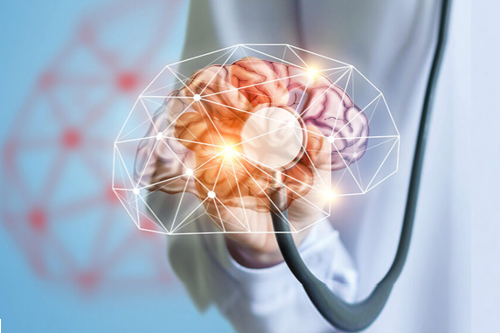
Neurology
Neurology is a vital branch of medicine that focuses on the diagnosis, treatment, and management of disorders affecting the brain, spinal cord, and peripheral nervous system. Over the years, advancements in neurological research and medical technology have significantly improved our understanding of complex neurological conditions. Furthermore, with the integration of artificial intelligence, neuroimaging, and innovative treatment strategies, neurology continues to evolve, offering better healthcare solutions to patients worldwide.
Why Is Neurology Important?
Common Neurological Disorders
1. Alzheimer’s Disease and Dementia
Alzheimer’s disease is a progressive neurodegenerative disorder that affects memory, thinking, and behavior. Consequently, patients experience cognitive decline, which worsens over time. Additionally, while there is no cure, various treatment options, including medications and lifestyle changes, can help manage symptoms and slow disease progression.
2. Parkinson’s Disease
Another common neurological condition is Parkinson’s disease, which primarily affects movement. In addition to tremors and stiffness, patients may also experience balance issues and speech difficulties. Moreover, innovative treatments like deep brain stimulation (DBS) and medication adjustments can significantly improve motor functions.
3. Epilepsy
Epilepsy is characterized by recurrent seizures caused by abnormal brain activity. Interestingly, advancements in neuroimaging and genetic studies have enhanced the diagnosis and treatment of epilepsy. Furthermore, various therapies, including medications, dietary modifications, and even epilepsy surgery, help patients lead normal lives.
4. Multiple Sclerosis (MS)
MS is an autoimmune disorder that affects the central nervous system, leading to muscle weakness, vision problems, and fatigue. Additionally, recent advancements in immunotherapy and personalized treatment approaches have shown promising results in managing the disease.
5. Stroke
Stroke occurs when there is a sudden interruption of blood supply to the brain, resulting in potential brain damage. Moreover, timely medical intervention, such as clot-busting drugs or mechanical thrombectomy, can significantly reduce complications and improve recovery outcomes.
Key Neurological Diagnostic Techniques
1. Neuroimaging (MRI and CT Scans)
Magnetic Resonance Imaging (MRI) Computed Tomography (CT) scans provide detailed images of the brain and spinal cord. As a result, these imaging techniques help detect tumors, strokes, and neurodegenerative diseases with high precision.
2. Electroencephalography (EEG)
EEG measures electrical activity in the brain, making it an essential tool for diagnosing epilepsy and other neurological disorders. Furthermore, this non-invasive test is particularly useful in monitoring seizure activity and assessing brain function.
3. Lumbar Puncture (Spinal Tap)
A lumbar puncture involves collecting cerebrospinal fluid to diagnose infections, multiple sclerosis, and other neurological conditions. Additionally, this procedure is often used to evaluate inflammatory and autoimmune disorders affecting the nervous system.
4. Genetic Testing
Advanced Neurological Treatment Options
1. Medications and Drug Therapy
Medications are often the first line of treatment for many neurological conditions. For instance, antiepileptic drugs (AEDs) help control seizures, while dopamine agonists are effective for Parkinson’s disease. Furthermore, continuous research leads to the development of newer, more effective drugs.
2. Neurorehabilitation
Neurorehabilitation programs are crucial for patients recovering from strokes, traumatic brain injuries, and neurological surgeries. Additionally, physical therapy, speech therapy, and occupational therapy help restore lost functions and improve overall well-being.
3. Deep Brain Stimulation (DBS)
DBS is a revolutionary treatment for Parkinson’s disease, essential tremors, and certain psychiatric disorders. Moreover, it involves implanting a device that sends electrical impulses to specific areas of the brain, thereby improving motor functions and reducing symptoms.
4. Minimally Invasive Neurosurgery
Minimally invasive neurosurgical techniques have significantly reduced the risks associated with traditional brain surgeries. Furthermore, endoscopic procedures and laser therapies provide better outcomes with shorter recovery times.
5. Stem Cell Therapy and Regenerative Medicine
Stem cell therapy is emerging as a promising approach in treating neurodegenerative diseases. Additionally, ongoing research is exploring ways to use stem cells for brain repair and functional recovery in conditions such as spinal cord injuries and multiple sclerosis.
Challenges and Future Prospects in Neurology
Despite significant progress, neurology still faces several challenges. Some of these include:
- High Treatment Costs: Advanced neurological treatments, including neuroimaging and robotic surgeries, can be expensive, limiting accessibility.
- Complex Diagnoses: Many neurological disorders have overlapping symptoms, making diagnosis challenging.
- Need for More Research: Continuous research is essential for discovering new therapies and understanding the root causes of neurological diseases.
- Ethical Concerns: The use of AI, gene therapy, and neuroprosthetics raises ethical questions that need careful consideration.Contact Us
Conclusion
In summary, neurology is a rapidly evolving field that plays a crucial role in diagnosing and treating brain and nervous system disorders. Moreover, advancements in neuroimaging, artificial intelligence, and personalized medicine are revolutionizing patient care. While challenges remain, ongoing research and technological innovations continue to provide new hope for individuals affected by neurological disorders. Therefore, staying informed about the latest developments in neurology is essential for both medical professionals and patients seeking effective treatment solutions.Schedule your Consultation with Dr. Ritesh Nawkhare
